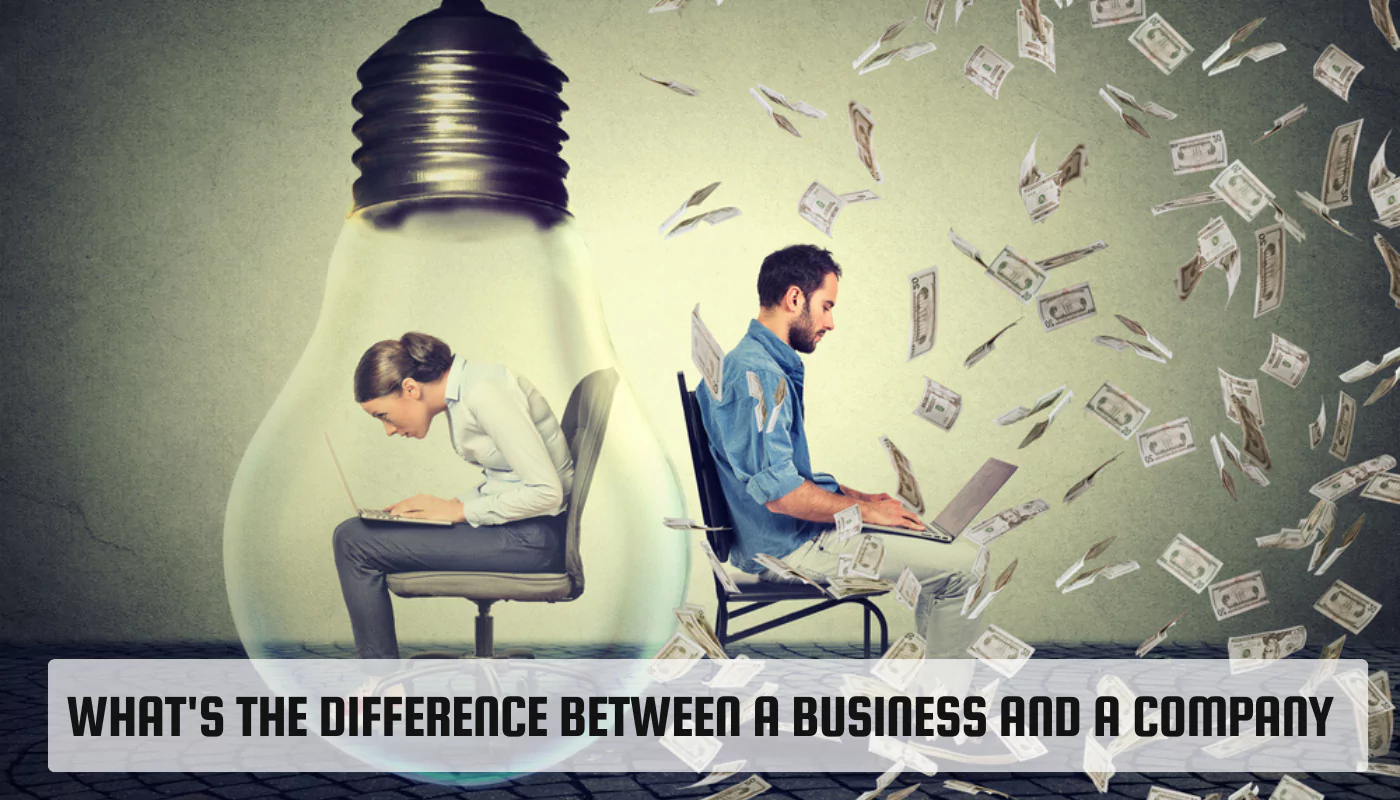What’s The Difference Between A Business And A Company?

Many people confuse a business with a company, but are completely different entities. Some use these terms interchangeably when writing emails, blogs, or other content. Now, the question is, can you use “business” instead of “company”? You must learn the basic differences between these concepts to understand which suits you.
The legal structure of a business and a company are different. They also have different tax return policies. Moreover, forming a business is different from starting a company. Another important difference between these two entities is how the liability is divided.
So, how does a business differ from a company? An operator sells goods or services in a business. A company is a form of business that shareholders often own. So, a group of individuals’ involvement is required to form a company, which isn’t required to start a business.
Let’s learn the basic differences between a business and a company:
Business vs. Company – How do their Setup processes differ?
You must know some key differences before starting a business or company. Setting up a business will be challenging without a plan or strategy. Besides, you must choose a name and register it online or offline. A license or insurance is essential when starting a business to avoid legal complications.
On the other hand, starting up a company can be complicated. An individual must create a separate legal entity from the shareholders. Additionally, the company owner must select a unique name and a structure. Appointing a secretary is crucial for a company as he is responsible for implementing the board of directors’ decisions.
You must also choose suitable people who can manage or control the company. The company owner also needs to prepare documents to run it legally. Once done, he must register the company for the ultimate legal protection.
Business vs. Company – How do their Ownership Differ?
Another significant difference between a business and a company is how these 2 entities are owned. You will find one self-employed owner in a business in most cases. However, he can partner with 2 or more people to operate the business. Partners distribute the profit gained from the business at the month’s end.
On the other hand, 2 or more shareholders or directors own a company’s share. Profits gained from the company are shared with shareholders and employees as a salary. In small business, the company owner or owners get the profit.
Business vs. Company – How Do they Divide their Liability?
Business owners or owners sell products or services under the business name. However, a business can’t be a legal entity. Hence, business owners are solely responsible for the bank debts and legal problems.
A company is a legal entity, making it responsible for legal debts they owe to third-party creditors. Shareholders or boards of directors also have limited legal responsibility in a company. Companies and businesses must take on liabilities to continue their daily operations smoothly. It will also help them to grow without hindrances.
Business vs. Company – How do their Tax Filing Differ?
A company and a business file and pay taxes differently. A self-employed business owner must file their tax returns at every tax year’s end. Did you run the business with your family members? The business partners must file a partnership tax return.
On the other hand, companies file an annual corporation tax at each tax year’s end. It is levied from the public or private company’s annual net profit. So, what is included in a company’s taxable income? It includes the company’s total revenue after deducting COGS, development, and G&A expenses.
Business vs. Company – Which One is Larger?
A company is larger than a business and offers customers a wide range of services. You will find companies like Walmart or Target across the world. They offer different products, including household essentials, in one shop. These companies’ business model is designed to offer multiple products and services for customers’ convenience.
Besides, public or private companies focus on multiple markets rather than a business. Businesses remain static most of the time. However, a company is more dynamic than a business, regardless of its type. Let’s say you run a restaurant, and this industry or market will remain the same in the next 2-3 years.
However, leading companies like Google or Apple are dynamic. They constantly update their business model and practices to improve user experience. These companies develop new technology to increase users’ number and annual sales.
What are the Different Business and Company Types?
Many people need to be aware of the types of businesses and companies. Most of them think that a single individual runs a company or business, which is not true.
Here, we have mentioned the different business and company types that you must know:
Types of Business
There are two basic business types that you must be aware of – a partnership or sole proprietorship. Here is what you must know about them:
1. Sole Proprietorship
As the name implies, a single person owns and runs a sole proprietorship business. Thus, there will be no legal complications in this business type. The business owner is only responsible for the tax filing, return, and legal liabilities.
2. Partnership
Two or more people form and conduct a partnership business. Each partner contributes a significant money amount and resources to generate sales. They share the profits and losses from the business. It will be recorded on both the business partner’s tax return.
Types of Companies
There are a few company types you must know about. However, you must consult with an expert if you don’t know which type of company you should set up. Here are the most common company types:
Public Limited Company (PLC)
A public limited company (PLC) usually deals with the U.S. stock market. Directors and shareholders manage and control this type of company. They protect the company from liabilities and clear off the debts owed from the lenders. It exists as a separate entity to the company owners.
Private Limited Company (LTD)
A private limited company (LTD) works similar to a public limited company. Owners distribute the profit and loss among them like a PLC. However, the general public can’t have this type of company’s share. Shareholders or non-government agencies generally own private limited companies.
Limited Liability Partnership
A limited liability partnership, LLP, is similar to a partnership business. This type of company requires two or more individuals to operate the essential business operations. It also has a similar internal management and share distribution structure to a partnership.
Community Interest Company
A community interest company or CIC works differently than an LLP, LTD, or PLC. The main objective of this business is to reinvest the profits gained from sales. It benefits the community rather than people who have invested in the company.
Should You Start a Business or a Company?
There are certain pros and cons of starting a company and business. Thus, you must know them to make better decisions. Your financial documents won’t be publicly available, increasing business privacy. Minimum paperwork is required to set up and operate a business.
However, the tax rate will increase if your business profit increases. Generating funds for your business can be challenging. Besides, finding the right business partner can be nerve-wracking for you.
On the other hand, companies have lower tax rates than businesses. They are more established and secure than a sole proprietorship or partnership business. So, which one should you choose between a company and a business? The decision depends on the profit you expect to gain, trading type, and the liability you will get.









